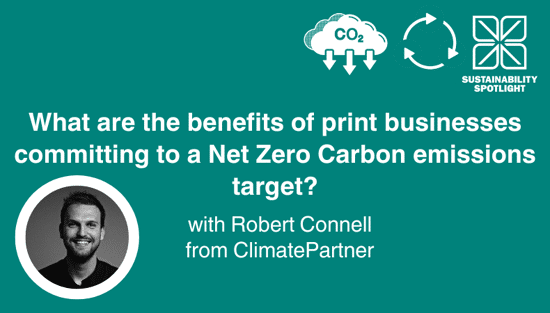Certification Schemes, Energy Reduction and Brands
.png?width=750)
Sustainability is crucial for every business to take into account, particularly the certification schemes available, the importance of energy reduction and the significance of understanding your business's supply chains.
Certification Schemes
Certification schemes ad standards have various purposes. Some are used to help businesses to reach and set their goals. Others demonstrate what a business has achieved be it a certain performance level or benchmark. Other certifications are designed for products to specifically demonstrate qualities that help your business make sustainable choices. In addition, there are standards that assist with reporting or environmental statements.
All these standards and schemes are created with the aim of helping businesses be more transparent and objective and where necessary provide comparability. By using accepted and well-known standards and labelling systems and using third party verification or certification helps businesses avoid greenwashing.
Products
There are several types of label or certification for products. Some focus on just one aspect of a product’s life cycle such as forestry standards where some look at energy efficiency like USEnergyStar and some look at the whole life cycle such as the EU Ecolabel and regional labels like Nordic Swan. There are also labels that focus on particular sectors of print such as OEKO-TEX for textiles and leather.
To discover 5 thing to consider in businesses terms for Nordic Swan Ecolabel listen to the podcast here. To learn how to navigate the way to a sustainable future with ECO PASSPORT by OEKO TEX read here. For further information on various certification schemes please read here.
Management System Standards
Management systems offer the necessary steps a business needs to understand, manage and improve its performance in a specific topic area such as environment. By attaining this, it offers universal recognition by potential and existing customers. Third-party certification provides the assurance that the standard is being correctly followed, the business is improve and that compliance requirements are being management and evidence out outcomes is provided.
The International Organisation for Standardisation (ISO) is a system that is applicable globally and has over 160 national standards bodies with the aim of developing common standards across the world which is crucial for international trade.
Energy Reduction
By reducing your business’s energy will help tackle energy bills and climate change. The cheapest kWH is the one you do not use and is also the one with the least climate impact. There are several ways to reduce energy which include changing behaviour, and using technology. There cheap, quick wins that your business can action or more serious investments.
To increase your chance of success it is important understand how to use energy, how to measure it and how to use it. Then plan and implement your plans and monitor your outcomes, this will be the beginning of your energy management.
If you have only 1 electricity meter for your site, it’s possible to hire data loggers to determine the machinery that requires the most amount of electricity. The loggers will track the consumption for specific items of equipment.
To determine where your energy for heating is being wasted during the winter months, it is possible to hire an infared camera, also known as a thermographic camera. These cameras show the intensity of heat loss from your building so that you can see where you are wasting your heating energy.
There are various useful sources of information that can help our business to reduce your energy consumption. One of these include Carbon Trust who offer guidance on how to do an energy audit and Energy Star demonstrates how to save energy with how-to guides, checklists and energy saving tips.
For more information on how to reduce the energy consumed by your business please read here.
Brands
The Carrot & Sticks 2020 report shows that larger businesses are held far more accountable than smaller businesses and are legally required and are required to have self-regulatory obligations. In addition, they have demands from shareholders and other investors which is varied by the region.
Investors often use ESG criteria to determine where they should invest their money, be it environmental, social or governance framework performance of a business. If a business offers products or services directly to consumers, they may also be held accountable by their customers or by environmental organisations.
Larger businesses are legally required to report on their energy use and carbon emissions. In addition, new global treaties will be introduced over the next few years that will demand that businesses need to understand what is in their supply chain no plastics for 2024 and forests. Several businesses have signed up to global voluntary initiatives for carbon disclosure that include their supply chains and are undertaking sustainability reporting and programmes of net zero.
Furthermore, there are initiatives such as the Sustainability Hospitality Alliance and the Sustainable Apparel Coalition that measures sustainability for the entire life cycle of apparel and footwear.
To further understand the importance of understanding your business’s supply chains please read here.
Recent news

What are the benefits of print businesses committing to a Net Zero Carbon emissions target?
We speak to Robert Connell, Senior Commercial Sustainability Manager at ClimatePartner who who offer solutions along the net zero cycle to support business’s effort in corporate climate action. In this discussion we discuss the importance and the process and benefits of businesses committing to a Net Zero Carbon emissions target.

6 Sustainable Printing Practices Changing the Game in Textile and Apparel Decoration
The textile industry is shifting towards sustainability. Innovations like waterless and digital printing, eco-friendly inks, and recycled materials are reducing waste. AI and automation optimise production, while circular models promote reuse. Consumer demand for transparency drives this change, making sustainable practices essential for future-focused brands.

Sustainability in Production Print: Advancing Practices in Wide Format, Textiles, and Software
As sustainability continues to take centerstage across industries, the production print sector is making massive strides in integrating eco-conscious practices. From wide format to textile applications, with the growing reliance on advanced production software, the space is evolving to meet environmental goals as well as consumer demand for sustainable products.

Why must the print industry recognise software and material innovation
Laurel Brunner argues that the printing industry must recognise the value of both software and material innovation, and be willing to pay for it. Software, though intangible, drives efficiency and reduces carbon footprints. While materials science currently dominates, R&D costs are inherent in all advancements. Paying a premium ensures continued progress, benefiting the industry's evolution and sustainability.